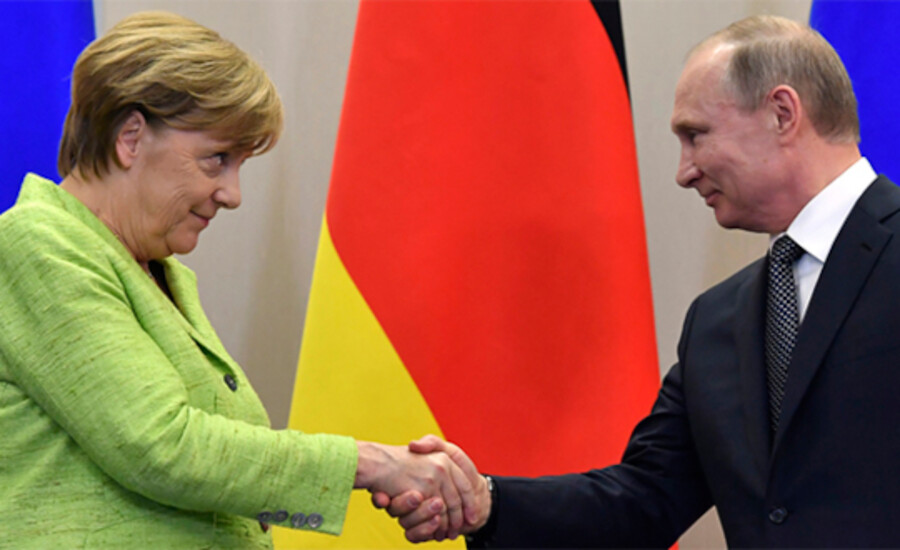
ALEXANDER NEMENOV/AFP/Getty Images
Germany Sides With Putin Against America’s New Sanctions Against Russia
On June 15, the United States Senate agreed to impose new sanctions on Russia. Their approval, however, met great disapproval in Germany. The passed bill includes sanctions that would intervene in the building of energy export pipelines into Europe that could also harm German and European firms involved in Nord Stream 2.
It is yet unclear whether or not President Donald Trump will back the sanctions, but comments from both Russia’s and Germany’s heads of state show that the two are eager to cooperate, even against American will.
In a joint press release with Austrian Chancellor Christian Kern, the boisterous German Foreign Minister Sigmar Gabriel immediately strongly opposed the decision, accusing the U.S. of acting out of pure self-interest. Rather than punishing Russia for its supposed interference in the U.S. elections, the new sanctions are aimed at easing “the sale of American liquefied gas and the sidelining of Russian gas supplies in the European market.”
Germany has been criticized lately by the Trump administration for exploiting America’s economy. President Trump pledged that this will soon change. Limiting Russia’s gas supply into Europe would be one way the U.S. could get the upper hand in the relationship.
In the press release, Social Democrats Gabriel and Kern noted that “instruments of political sanctions should not be connected with economic interests.” Europe’s gas provision is “a European affair, and not one for the United States of America!” This ushers in “an entirely new and extremely negative quality to European-American relations,” the two concluded.
Gabriel’s strong statements were later backed by German Chancellor Angela Merkel. Her spokesman, Stefan Seibert, said that Merkel strongly agrees with the content of Gabriel’s message, though they did not previously discuss it with the chancellery.
“Germany threatened on Friday to retaliate against the United States if new sanctions on Russia being proposed by the U.S. Senate end up penalizing German firms,” Reuters wrote on June 16. German Economic Affairs Minister Brigitte Zypries told Reuters that if President Trump ends up backing the sanctions, “we’ll have to consider what we are going to do against it.”
But Germany and Europe are not the only unhappy ones. Last Saturday, Putin said that “it will of course complicate the Russian-American relationship,” according to tass news agency.
Europe and Russia know that they depend on each other economically if they want to be successful. At the beginning of the month, Gabriel and Former German Chancellor Gerhard Schröder, who now serves as the head of the Nord Stream AG, met in Saint Petersburg with Russian President Vladimir Putin. The United States’ attempts to break these relations might, in the end, be the driving force to unite them.
Gabriel and various other German politicians are eager to end sanctions on Russia, looking for the slightest sign that Putin is willing to cooperate in Ukraine. We at the Trumpet have long suspected that the two will side against the U.S. History shows that when these two power blocs work together, the world should expect trouble. We see history repeating itself as Germany and Russia form an alliance that will frighten the world for one last time. Read “The Russian Alliance You Really Have to Worry About” to know what to expect in this upcoming alliance. ▪
